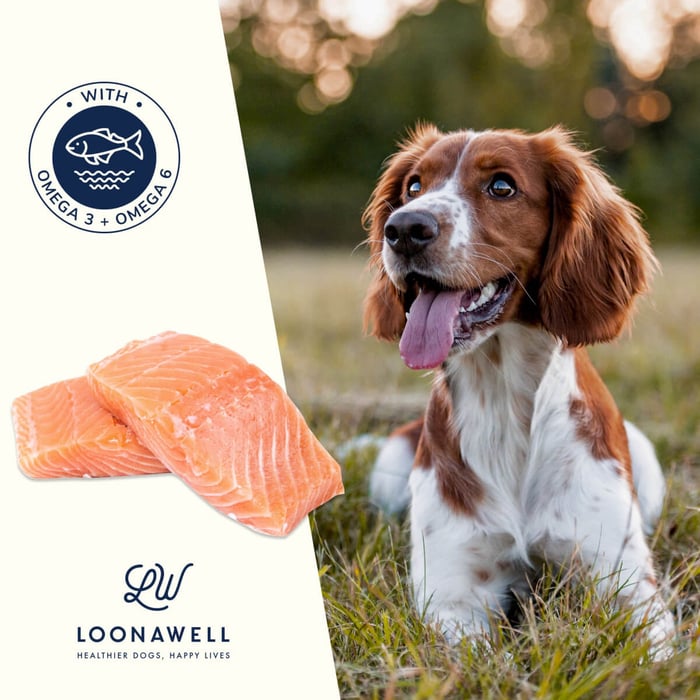Spring has finally arrived and with it, our supermarkets and local markets start carrying more and more colorful, various berries. Raspberry season is around the corner and we’re all over it, so we decided to share some information about raspberries for dogs with you.
In a previous blog article we described how blueberries can be good for our dogs and today we’ll dive into the health benefits and also one potential risk of raspberries for dogs.
Organic Raspberries for Dogs
Consumers are not only more aware of the importance of eating a fresh variety of fruit but there is also a growing interest in making sure these are of organic origin. In fact, Fortune Business Insights has reported that “The global demand for organic berries continues to increase. This growth is mainly due to the rising awareness of consumers about the health benefits of fresh fruits and vegetables free from harmful chemicals and pesticides.”
Unfortunately, the cost of organic products has a tendency to be higher than non-organic products, and as consumers, we might see increased prices as an effect of the global COVID-19 pandemic which has negatively impacted the harvest of organic berries.
…but as you’ll see, the health benefits make it worth the investment… So keep reading!
Where do raspberries come from?
If you stop to wonder where this beautiful red fruit comes from, you’ll find that raspberries need ample sun and water for optimal development and in Europe, the main leading producing countries are Poland and Spain.
The health benefits of raspberries for dogs:
Raspberries are like tiny powerhouses as they offer an abundance of health benefits. In fact, raspberries belong to the group (alongside other berries) of best dietary sources of bioactive compounds. Fresh raspberries can in fact be:
• Source of Antioxidants: the presence of a variety of bioactive compounds such as anthocyanins, tannins, other phenolics, and ascorbic acid, are believed to work in synergy and contribute to reducing the possibility of heart disease, cancer, diabetes, and arthritis.
• Source of important minerals such as potassium, manganese, folate, iron, magnesium, and zinc.
• Source of carotenoid, as well as vitamins C, K, and B-Complex.
• Low in sugar and calories, but high in fiber!
Can my dog eat raspberries?
The answer is yes! At LOONAWELL, we believe that sharing a special treat with your pup is a great bonding moment (and if it includes raspberries, a delicious one as well!). But just as in everything we feed our dogs, we need to be careful to do so in moderation, to avoid any adverse effects.
Be careful! Too many raspberries may have adverse effects on your dog.
Raspberries contain very small amounts of a natural sweetener called xylitol (also present in some kinds of toothpaste for dogs). However, when fed in large amounts, xylitol could be toxic to your dog. This does not mean that raspberries are toxic for your dog, they’re indeed a great source of nutritious and healthy bioactive compounds but like any other food we share with our doggies, they should be given in moderation.
How many raspberries can I feed my dog?
Raspberries for dogs should be considered as a treat (not a whole meal) and as treats, they should not constitute more than 10% of a dog’s daily caloric intake. 100g of fresh raspberries, on average, have around 52 Kcal. The weight of one average-sized raspberry is around 5g. Therefore our maximum daily intake recommendation for our dogs, taking into account calories and xylitol, would be:
For dogs that weigh less than 5 kg: 8 berries/day max.
For dogs between 5-9Kg: 10 - 18 berries/day max.
For dogs between 10-13 Kg: 19 -20 berries/day max.
For dogs between 14-18 Kg: 20-24 berries/day max.
Now remember that if you give the maximum amount of berries, then you should cut back on all other treats so you don’t surpass the 10% mentioned above. So ideally, it is better not to reach the maximum amount of berries/day and just use the amounts above as a reference.
Can I give my pup smoothies, jams, and yogurts that contain raspberries?
When you buy a smoothie, jam, or raspberry yogurt for yourself, you might believe that you can share it with your dog too. However, we do not recommend doing so as the majority of processed foods and beverages contain a variety of preservatives and additives that might be harmful to your dog and in the end, the negative effects might overcome any health benefits of raspberries.
Does LOONAWELL use raspberries in its recipes?
Absolutely yes! In our Beef Delight organic baked treats we use raspberries, for all the incredible benefits that we have mentioned above. Haven’t tried them yet? Well, maybe today is a good day to treat your dog to a healthy and happy moment.
Beef Delight Organic Baked Dog Treats

CHF. 16.80
Rich in high quality protein, for your dog's health and vitality. These organic treats are handcrafted and traditionally baked, with an exquisite flavorful balance. Rich in protein, antioxidants, vitamins, minerals and prebiotics, for a dog's optimal health. Organic and human-grade… Read More




